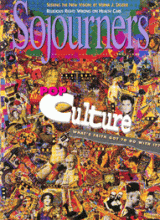Merton's conversational flavor is best embodied by a series of lectures now available through Creedence Cassettes. He expounds on a variety of interesting subjects to the novices at Gethsemani.
In a sense, Merton was a strange candidate for the seclusion of the monastery, because he was thoroughly cosmopolitan, having lived and traveled in many different cities and cultures. As the Merton tapes reveal, even during what could have been the driest of subjects within the monastic and scholastic traditions, Merton brought his own flair for high-caliber intellectual give-and-take, a knowing twinkle-in-his-eye sense of humor, and the benefit of his own deeply developed personal journey that had its share of ups and downs.
Merton's lecture on the hidden ground of beauty and truth in a postmodern world was never solely academic. As has been noted many times by Merton experts, his observations and conclusions often had an open-ended tentative quality about them that was less systematic than it was exploratory. This made for excellent sessions captured on tape: You can actually feel the minds and spirits of the young monks being drawn into a dialogue with a spiritual master who could have been extremely intimidating if he chose to be.
Instead, you're treated to informative and entertaining lectures on the German metaphysical poet Rilke, the religious principles behind the Greek tragedies, and the difference that the open-spiritedness of such seemingly outmoded notions as poverty and prayer could make in the inner transformation of human beings. On tape, you get an appreciation for Merton's particular mix of substance and informality.
Merton didn't re-invent the theology of the Catholic Church as much as re-interpret it over and over in his books in a way that seemed to address his own personal fragmentation. He invites the novices in his classes to do the same.
Read the Full Article
